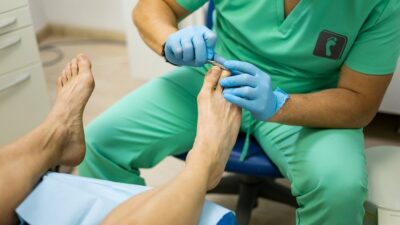It is easy to confuse an obstetrician with a gynecologist since they tackle reproductive matters. The difference is that the former provides care to pregnant women, while the latter manages conditions that affect the female reproductive system. To understand the difference between them in detail, Dr. Nicole DeQuattro Silver Spring will be happy to tell you more about them.
An obstetrician does a lot more than just helping women give birth. That is because pregnant women usually require plenty of medical attention. Here are the duties of obstetricians.
Table of Contents
Conducting Pregnancy Tests
Obstetricians can conduct them as early as 11-14 days after ovulation. First, they draw blood from a vein in your arm and take it to the laboratory for testing. To determine how far along you are in your pregnancy, they analyze the amount of human chorionic gonadotropin (hCG) in the blood.
Besides blood, your obstetrician can conduct urine pregnancy tests. When a woman becomes pregnant, their placenta begins producing hCG. If the hormone is present in the urine, it means she is pregnant.
Providing Postpartum Care
Doctors provide this service for six weeks after childbirth. Remember, your body will undergo certain changes, such as wounds from a C-section or developing sore breasts. As a result, your doctor cannot release you until you fully recover.
Postpartum care does not just focus on your physical being but also your mental being. Occasionally, you will experience mood swings, irritability, or anxiety. Your doctor will help you look forward to childrearing by counseling you.
Treating Conditions That Can Affect Pregnancy or the Baby
One condition that obstetricians treat is an ectopic pregnancy. You will know you have the condition when you develop tummy pain, miss a period, or discharge brown watery fluids from the vagina. To stop the pregnancy, the doctor may provide methotrexate medication or perform a laparoscopy.
Another condition they treat is fetal distress. Possible causes of the condition include diabetes, low amniotic fluid, placental abruption, late-term pregnancies, or preeclampsia. If your baby is in serious trouble, your obstetrician will have to deliver your baby through a C-section or vacuum extractor.
Monitoring Your Pregnancy
The aim of monitoring pregnancy is to assess the baby’s heart rate. If the heartbeats occur irregularly, the baby is not receiving sufficient oxygen. Doctors can monitor pregnancies through external or internal monitoring. The former involves fetoscopes and Doppler, while the latter uses an electrode on the baby’s head.
Some risks may occur, particularly with internal monitoring. The electrode may make a minor cut on the baby’s head. Thankfully, the cut usually heals quickly.
Evaluating Your Baby’s Size
A baby is considered big if they weigh more than 8 pounds. Potential risks of having a big baby include increased risk of bleeding, need for C-section, and prolonged labor. Sometimes, your baby may have jaundice or breathing problems. Nonetheless, big babies will not always get complications.
Obstetricians can determine how big your baby will be by checking the amniotic fluid amount and measuring your stomach. When they determine the baby will be big, they prepare some treatment plans just in case. If your baby is born, the doctor will measure their sugar levels to determine whether they are normal.
Sometimes, women give birth at home without a doctor’s help. Some do that because they are too far from the hospital, while others think it cuts costs. Either way, you should see an obstetrician immediately. That is because you may get complications that you cannot remedy yourself.
Additionally, doctors can make you feel relieved about your experience. Think about it, who will be there to comfort or counsel you when you give birth? If you feel you need some counseling but are too far from a hospital, call a cab or a family member.










Comments